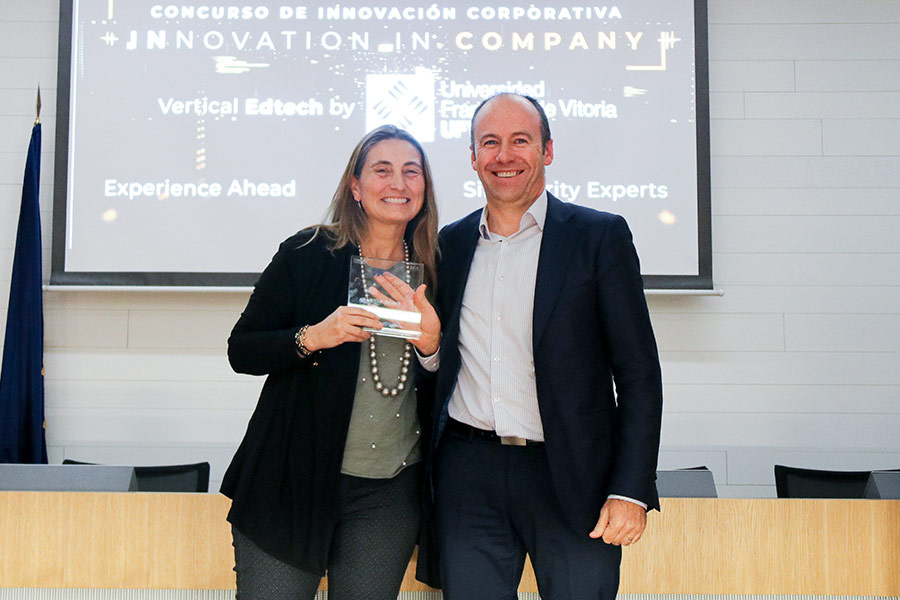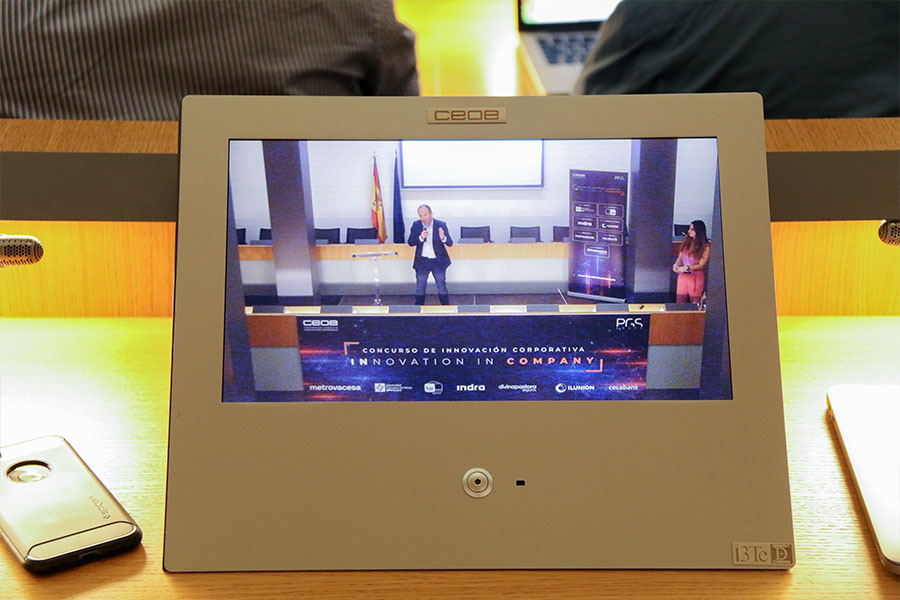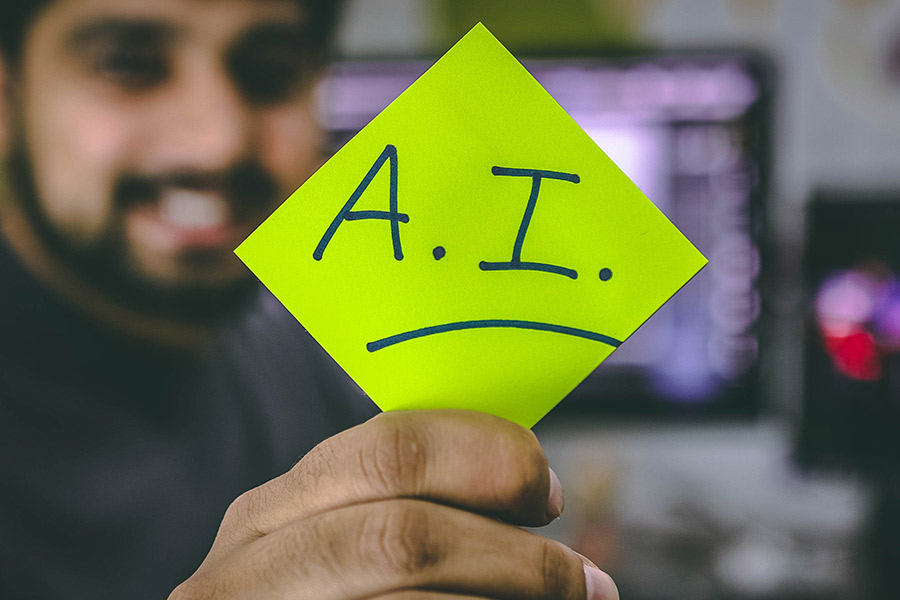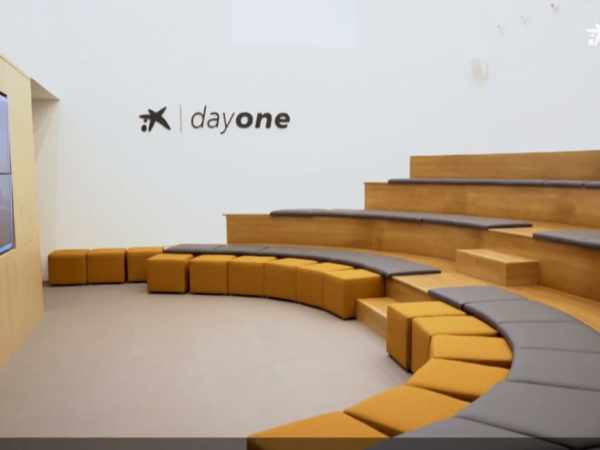“A collective brain multiplies the speed and effectiveness at which an organization and its teams are able to transform themselves and successfully solve their most complex challenges.” With this statement, the CEO of CiBUC, José María González presents the competitive advantage of this company.

This pioneer start up in Spain was born with the conviction of turning complex organizational challenges into simple intelligent routes thanks to the collective intelligence [artificial]. It is a tool that connects people and computers in such a way that, in their collective union, they are more intelligent than in their individual dimension.
For its CEO, the key is to get people’s ideas talking, but not the people themselves. Some companies already have the intelligent consensus routes generated by the collective brain proposed by CiBUC.
However, the recognition of this technology company goes beyond that. CiBUC has been awarded as the most innovative national startup in EDTECH by the Francisco de Vitoria University. This award is given as part of the ‘Innovation in Company’ open innovation contest, promoted by the Spanish Confederation of Business Organizations and the investment consulting firm Grupo PGS.

After the flood of congratulations received, José María González wanted to reflect on what it means for companies to have this collective brain network .
What does this recognition mean to you and the CiBUC team?
What to say! We are very happy and grateful with this award to the most innovative national startup in #EdTech. It is a wonderful thing to be told by a pioneering university in education such as Francisco de Vitoria that you bring something new and relevant to the way people learn.
I advocate that companies invest first in “innovating how to innovate”.
The collective intelligence [artificial] is still little known and that is why this award in EdTech and having been finalists in the category of artificial intelligence, is the best recognition that CiBUC, our collective brain, can receive. That is why I congratulate the PGS Group for promoting these innovation awards and the CEOE for giving them a place and prominence in its busy schedule of events.

A priori the collective intelligence [artificial] is perceived as something not very tangible, is it complicated to start up a start up with this premise?
In my opinion, two things are key to entrepreneurship: the first is to focus on a problem, need, desire or important aspiration and the second is to provide a solution that is absolutely different and whose perceived value for the potential customer is much higher than the price you propose to pay to acquire it.
The tricky part is not to undertake with collective artificial intelligence, but to ensure that when a company uses it, it receives such an injection of value that the price it pays is not perceived as an expense but as a good investment.
It may seem strange in this day and age to say that “talking is NOT the way people understand each other”.
The awards ceremony featured Jaime García, content director of El País Retina, who stated that “companies that are not investing in innovation are losing money”. What is your opinion of it?
I agree with your statement and go further. What I advocate is that companies invest first in “innovating how to innovate”. That is to say, in choosing the right technology, methodology and expert partners to innovate, because that is where the secret of success lies and where every euro invested can be exponentially profitable.

Intelligence [artificial] collective intelligence arises from confronting ideas rather than people
On some occasion you have talked about the need to take into account the collective intelligence of ants. Why?
What happens with ants and many other intelligent collectives such as termites, bees or schools of fish is that they are capable of generating a superior intelligence of an emergent nature that helps them to solve complex problems as they arise… and in real time!
This intelligence is commonly referred to as “swarm intelligence”. The bad news is that in human collectives it does not appear naturally, but must be “contrived” so that it can emerge and we can use it.
At a scientific level it is difficult to explain, because it is a very non-intuitive intelligence. It is very difficult to explain, for example, how ants are able to build bridges or even grow antibiotics by applying simple mathematical algorithms that have evolved over millions of years.
Know how to isolate ideas from their authors and submit them to indirect processes of grouping, combination, synthesis and qualified voting.

Fish shoals is that they are capable of generating higher intelligence of an emergent nature.
Do you consider that collective intelligence is structured in a brain system?
Adolfo Castilla, our senior Executive Advisor and “team guru”, likes to talk at this point about business neural networks.
For me, the most interesting thing about this brain system, and what is surprising, is that the intelligence [artificial] collective does not require people to talk (the same as you will never see ants together) but only needs people to contribute their ideas and on them you know how to apply some basic rules, the same as ants do when they move their grains of sand.
I recognize that it may seem strange in these times to say that “talking does NOT make people understand each other” but what we now know is that collective intelligence [artificial] arises from confronting ideas rather than people .
It may seem metaphysical or even philosophical, but in reality it is as simple as knowing how to isolate the ideas of their authors and submit them to indirect processes of grouping, combination, synthesis and qualified voting, with the sole objective that the intelligence emerges and survives. [artificial] that there is in the collective and of which it is not even aware.
I do not think it is a problem of changing managers, but rather of renewing the management methodologies they use.

Conscious artificial intelligence is still a long way off.
Are you confident that this methodology can combat a conscious artificial intelligence that may emerge in the not too distant future?
Well, conscious artificial intelligence is still a long way off and not long ago I heard that history tells us to be much more afraid of natural stupidity than of artificial intelligence ….
However, what we have discovered, and with satisfaction, is that the collective intelligence [artificial] that emerges from CiBUC does not have amoral or perverse traits.
What is the big handicap that companies have? Why would your main solution be to implement collective [artificial] intelligence?
For me, the main handicap is that more and more companies feel incapable of evolving and transforming themselves at the speed at which their environment is changing, and this generates great anxiety and frustration, starting with those of their directors and managers.
Contrary to what many people think, I do not believe it is a problem of changing managers, but rather of renewing the management methodologies they use. More specifically, to get them to adopt collective A.I. as a new system of innovation and transformation, which is our raison d’être and main purpose.
I do not know of any sector in which innovation is not becoming more and more necessary every day.

It is very difficult to explain, for example, how ants are able to build bridges or even grow antibiotics.
The good news is that time and again we see that when managers stuck in a complex challenge agree to implement Collective AI as a solution, the situation is immediately unblocked and better results are triggered.
In light of the award, Roberto Rey, president of GLOVAL, personally congratulated me. We recently culminated with GLOVAL a commercial impulse project with collective A.I., which has had a magnificent impact both in the integration of the team and in the impulse of its commercial results.
If you had to summarize in 200 characters the benefits that a collective brain network brings to the company, what would you highlight?
A collective brain multiplies the speed and effectiveness at which an organization and its teams are able to transform themselves and successfully solve their most complex challenges.

More and more companies feel unable to evolve and transform themselves at the speed of their changing environment.
In which of today’s business sectors is this innovation increasingly necessary?
I don’t know of any sector in which innovation is not becoming more and more necessary every day. At the speed at which everything is changing today, I believe that there is no sector that is shielded and therefore exempt from the need to innovate. If I had to choose one, from my perspective as a client, I would say that the financial sector and the industrial and environmental sector (the latter being understood in a cross-cutting manner) have a huge innovative challenge.
A lot of new entrepreneurs fall more in love with their idea than with their customer.
When we think of collective intelligence, it sounds like the coming together of a large group. However, can a small company that has just launched its project start by implementing collective intelligence [artificial]?
The way I would recommend using the collective intelligence [artificial] to a small company that has just launched its project, would be to listen better to its customers, in a much more reliable and objective way. It happens a lot among new entrepreneurs that they fall in love with their idea more than with their customer and that’s why it takes them so long to succeed.

I do not know of any sector in which innovation is not becoming more and more necessary every day.
How would CiBUC’s CEO explain, in a nutshell, to a teenager what CiBUC’s collective networked brain is all about?
I would say that a collective brain such as the one proposed by CiBUC may be one of our last hopes to find together the intelligence and the future that our companies, our cities, our countries and even our planet and all its species need.



